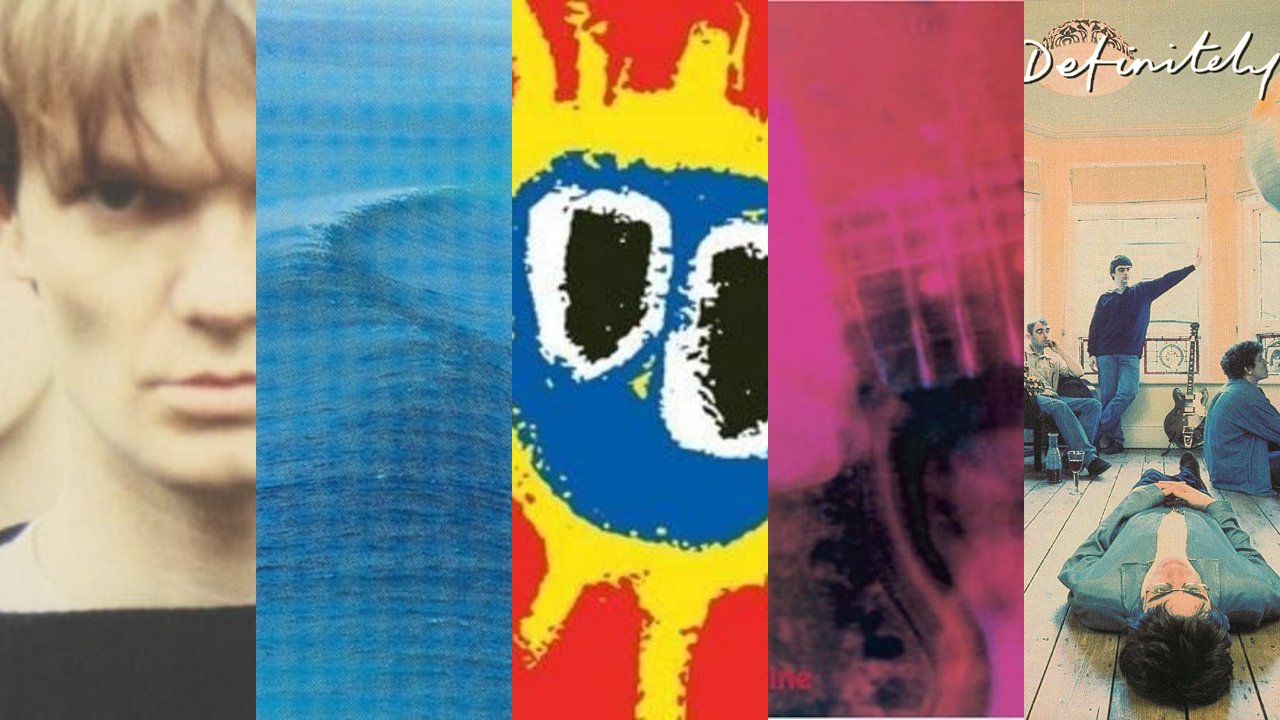Creation became a blockbuster name as the home of Oasis in the ‘90s, but that period only tells part of the label’s topsy-turvy tale. Founded in 1983 and led by charismatic, sometime-crazed Scot Alan McGee, Creation emerged at a time when the diehard indie wars were still raging and McGee led from the frontlines. His label became a go-to for some of 80s guitar-pop’s most maverick artists, including The Jesus & Mary Chain, Felt, The Weather Prophets, My Bloody Valentine, Bill Drummond and more.
McGee’s genius was to move the label with the times – when guitar music began to meld with dance at the end of the ‘80s and into the ‘90s, he was there, willing his charges Primal Scream on to make the change. It heralded an era of commercial success to go with all the indie kudos, with chart hits for Ride, Boo Radleys, Primal Scream and then the one to top them all – Oasis.
Here’s the story of Creation in five essential albums…

House Of Love - The House Of Love (1988)
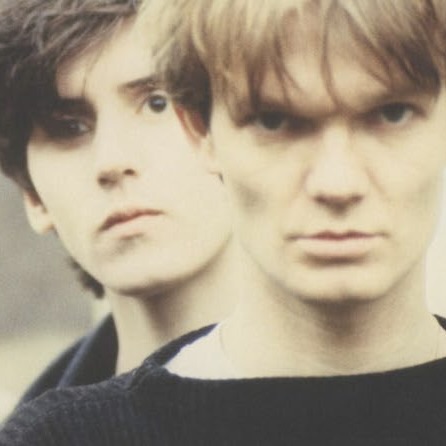
Towards the end of the ‘80s, Creation’s reputation seemed set. It was a record label that didn’t really sell any records, home to outsiders who enjoyed being outsiders, musicians to whom the mainstream was borderline repulsive. But all that changed with The House Of Love, a London-based four-piece who made angsty, chiming indie-rock and whose songs had a grand, melancholic romance to them. But they had a swagger, too, assured enough to leave their anthemic debut single Shine On off of the album.
Inspired by such confidence, McGee thought they were going to be huge and, in frontman Guy Chadwick, he had a singer who wanted to be. To that end, The House Of Love would be their only album release on Creation, signing to Fontana for their second record (confusingly, it was also self-titled) with McGee maintaining involvement by becoming their manager. They’d never better this, though, the album that showed Creation were starting to think big.
Ride - Nowhere (1990)
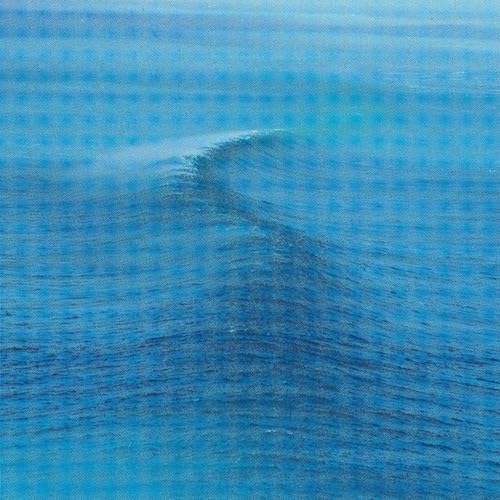
Although Creation had established itself as the place to be for a generation of rock ’n’ roll disobedients, it was a polite young quartet from Oxford who took the label to new heights.
A lot of expectation was already on Ride’s shoulders as they arrived at their debut album, three previous EPs mixing rolling grooves, guitars that veered from looming atmospherics to seething, wiry riffs and sweet '60s harmonies fighting for attention in the middle of it all suggesting they would be the poster boys for indie-rock in the new decade. This debut album lived up to the promise, a dazzling blend of shoegazing ambience and frantic rhythmic surges. Entering the UK album charts at Number 11, Nowhere became Creation’s highest charting record, signalling the label’s growing standing as an independent label reshaping mainstream music. A band hardly built with an attitude for the limelight, its success was something that Ride couldn’t sustain. Their label boss, though, was enjoying these dizzying heights. Even loftier climes lay right round the corner.
Primal Scream – Screamadelica (1991)

The road to Screamadelica was long for Primal Scream, who only ended up at their psychedelic masterpiece by taking a few accidental diversions on the way. Their first two records had taken in Byrdsian jangle-pop and Thin Lizzy-inspired rock but both had underperformed and, once regarded as bright young hopes, Primal Scream were in danger of being over before they’d even begun.
Enter Andrew Weatherall. The DJ and writer was brought in to remix a country-ish number from their second record titled I’m Losing More Than I’ll Ever Have and he turned it into the euphoric, era-defining banger Loaded. The band, already enamoured by dance culture, saw a new way forward and Weatherall was enlisted to help create the record that would become Screamadelica, collaborating with the band to pull apart and rework their songs. The resulting record was a genre-blurring landmark, fusing gospel, rock’n’roll, acid house, dub and more. It won the inaugural Mercury Prize and went on to sell over three million copies, but more than that Screamadelica was the sound of a new decade dawning for Creation. They’d hit the bigtime. Now, if only Alan McGee could get My Bloody Valentine's Kevin Shields to finish that album he was working on…
My Bloody Valentine - Loveless (1991)
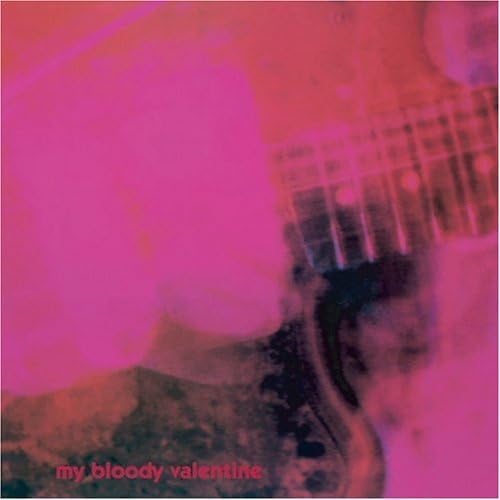
My Bloody Valentine had already released one of the most influential records of the era with their 1988 debut Isn’t Anything, an album that was both gripping and disorientating with its warped effects and indistinguishable meld of tape loops, synth and guitars. But here MBV leader Kevin Shields pushed his band even further forward.
A sonic pioneer and also a perfectionist, Shields very nearly bankrupted the label during the slow, arduous process of creating Loveless, restlessly moving from studio to studio, clocking up the hours, adding to the invoice pile. But what emerged at the end was an experimentalist rock record that put atmospheric soundscapes, fierce riffs and dreamy melodies into its visionary stew, recorded and produced in a way that you never feel like you’re getting the same listen twice. Its long gestation pushed McGee to the edge. At one point, the Scot rang producer Alan Moulder begging him to hurry along the process whilst when it was done, he had to borrow money from his dad so that the studio would release the masters. But they got there in the end – no matter the trouble on the way, Loveless’ legacy as one of the best guitar albums ever made was set.
Oasis - Definitely Maybe (1994)
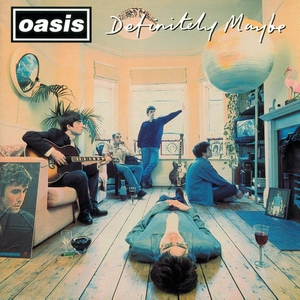
Definitely Maybe set a whole new bar, not just for Creation, but for everything. Oasis’s debut sounds so effortless, so inevitable that it’s hard to believe it was such a pain in the arse to make, the band scrapping a whole album’s worth of recordings and then dissatisfied at the next batch too, everything rescued by mixer Owen Coyle tweaking what he had to work with into sonic dynamite.
Of course, it helped that these were some of the best British songs written in a generation, tracks filled with desperate yearning and giddy aspirations: Live Forever, Rock’n’Roll Star, Slide Away, Columbia, Cigarettes & Alcohol. There is no better sound than the sound of a band who know they’re going to be massive right at the point before they’re massive, the jet engines already rumbling. A mammoth success, Definitely Maybe marked the end of Alan McGee’s label operating on the peripheries – from now on, they were reshaping the cultural landscape from the inside. Creation wouldn’t see it out the decade but perhaps that was the point. The label’s work was done. Nothing would be the same again.
